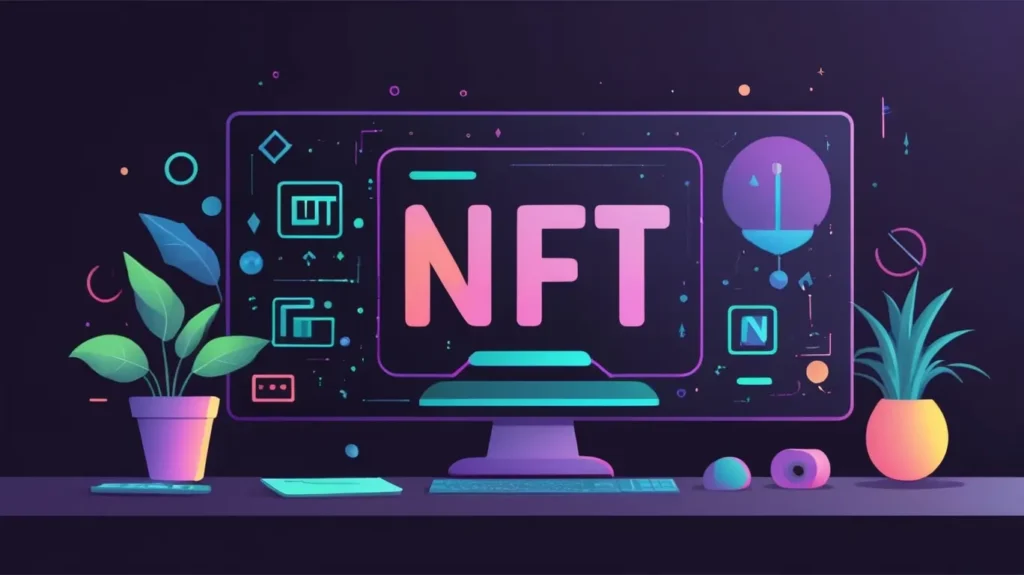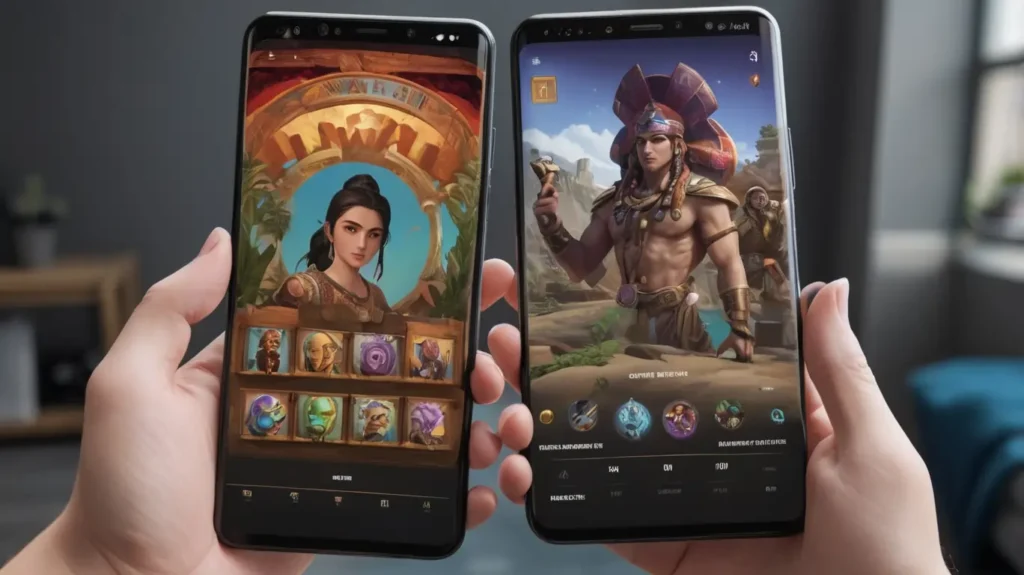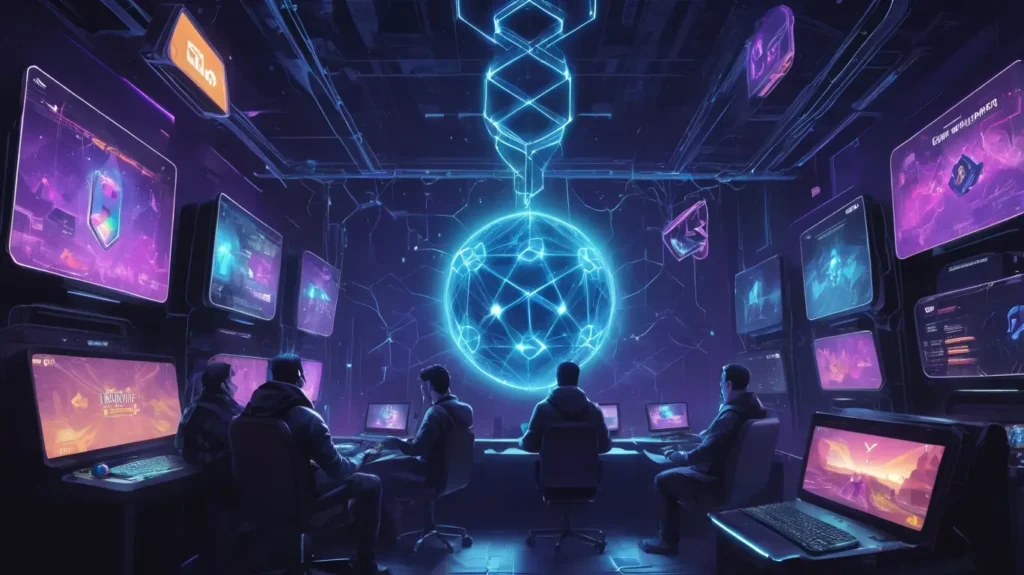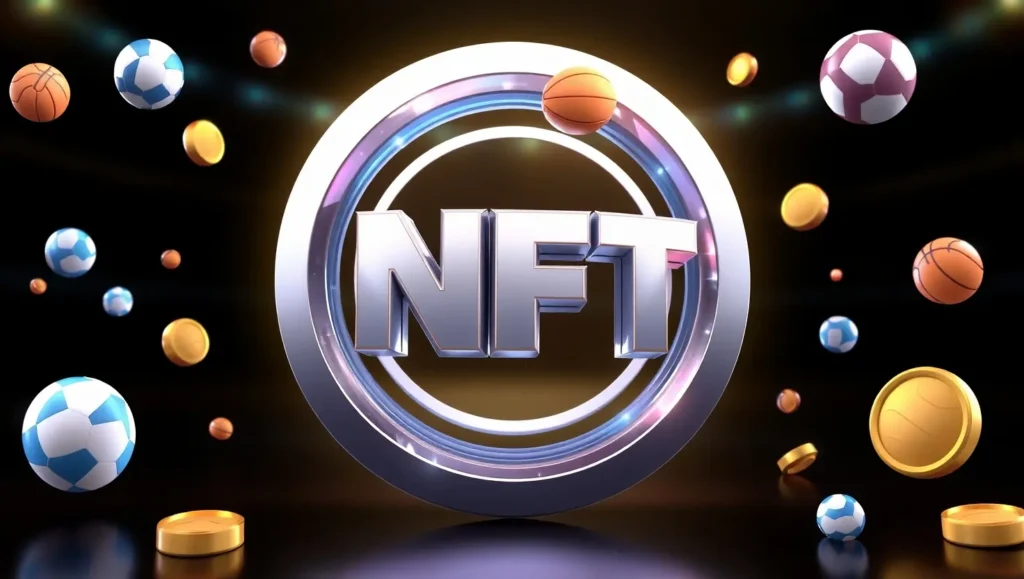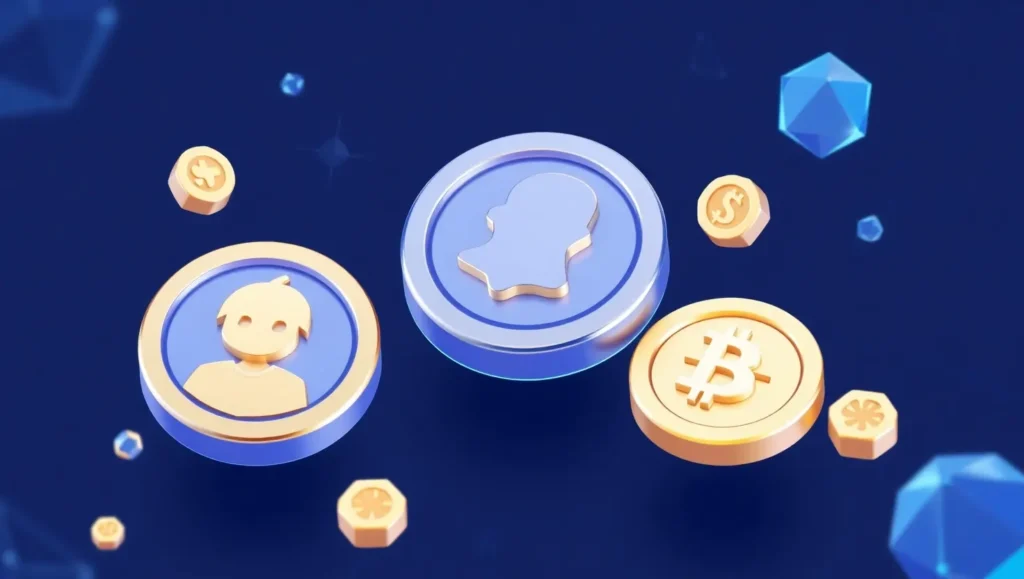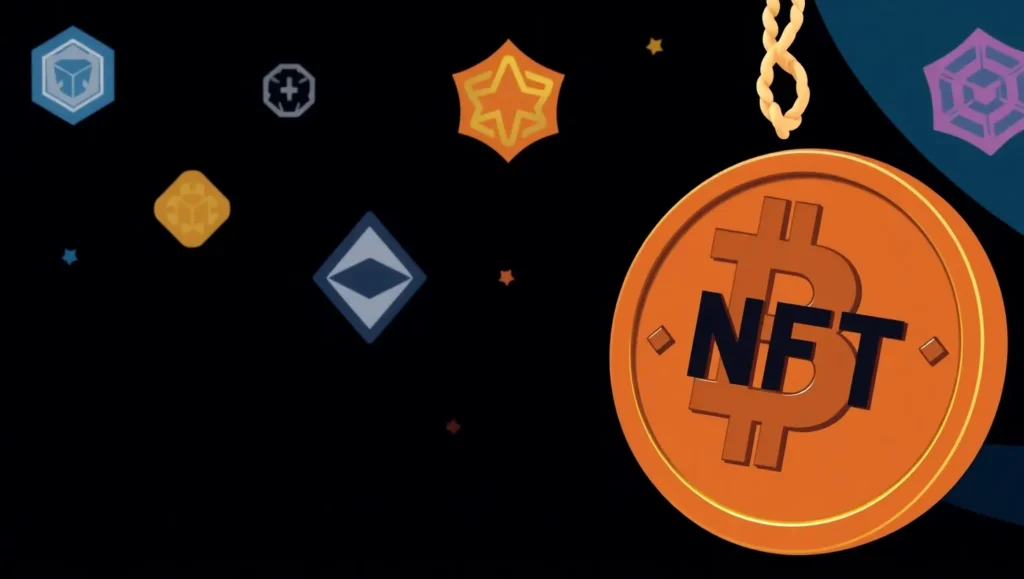NFT sports games have emerged as one of the most exciting and disruptive trends in both the gaming and sports industries. These games integrate non-fungible tokens (NFTs) with gameplay mechanics, allowing players to buy, sell, and trade digital assets representing real-world sports teams, players, or in-game items. This fusion of gaming and blockchain technology creates unique opportunities for fans and gamers, transforming the way we interact with sports and entertainment. In this article, we will explore 6 popular NFT sports games, their unique features, and how they are shaping the future of sports gaming.
Understanding NFT Sport Games
NFT sports games are digital games where players can buy, sell, or trade in-game items as NFTs (Non-Fungible Tokens). These assets are tied to blockchain technology, which ensures they are unique, scarce, and owned by the player. This integration gives players true ownership of items like player cards, collectibles, or virtual teams, allowing for real-world value and control over their assets.
Blockchain plays a crucial role in NFT sports games by ensuring that transactions such as purchases, sales, and exchanges of assets are secure and transparently recorded in a decentralized ledger. This technology enables the creation of a play-to-earn (P2E) model, where players can earn real-world value from in-game assets. Through blockchain, players can trade or sell their NFTs, allowing them to monetize their gaming experience and potentially profit from their in-game accomplishments.
Key features of NFT Sports Games.
Ownership and Interoperability
One of the key advantages of NFT sports games is true ownership of digital assets. Players can own items like trading cards or other virtual goods, which was previously not possible in traditional video games. These assets are securely stored on the blockchain, ensuring clear ownership and minimizing the risk of disputes. Furthermore, many NFT sports games are designed with interactivity in mind, allowing users to use their assets across different games or platforms, enhancing the value and utility of their digital items. This creates a more interconnected and expansive gaming experience.
Play-to-Earn Model
The Play-to-Earn (P2E) model is another defining feature of NFT sports games. Players can earn rewards by engaging in gameplay or completing specific tasks or levels. These rewards often take the form of NFTs, which can be traded or exchanged for real-world value. This creates a unique economic paradigm where gaming becomes a potential source of income for players, allowing them to capitalize on their in-game achievements and assets. The P2E model enhances the gaming experience by offering financial incentives alongside entertainment.
NFT Sport Games
Further, the following is the list of 12 energetic NFT sport games that come with a different feel of a game that was also invented with the help of blockchain.
1. Sorare
Sorare takes fantasy football to the next level by integrating NFTs into its gameplay. Players can collect digital trading cards featuring real-life soccer players, which they can use to create fantasy football teams. These teams then compete in weekly tournaments, earning points based on the real-world performance of the players on their roster. Sorare offers a wide range of partnerships with top football clubs, including Barcelona, Paris Saint-Germain, and Juventus, ensuring the game’s authenticity and appeal to fans worldwide.
What makes Sorare stand out in NFT sport games is its emphasis on both gameplay and the economic opportunities it provides. Collectors can trade rare cards, potentially making a significant profit as the value of these assets appreciates over time.
2. Zed Run
Zed Run is a digital horse racing game where players can breed, race, and trade customizable non-fungible token (NFT) horses. Each horse is unique, with varying attributes like speed, endurance, and strategy, which impact its performance in races. Players can bet on their horses and race against others, with the goal of winning prizes based on performance. The breeding and racing mechanics make the game intense and challenging, offering a deep layer of strategy as players aim to create the ultimate champion horse.
What makes Zed Run particularly interesting is the play-to-earn component. Players can breed horses to create valuable offspring, which can be sold or raced for profit. The game’s thriving marketplace and active community of breeders and racers make it a standout in the world of NFT sports games.
3. FootballCoin
FootballCoin is an application where fans participate in an online football game by creating their own team with their favorite players through NFT cards. Each card’s value represents the unique worth of an NFT, determined by the footballer’s real-life performance. The scoring system is unique, as it depends on the players’ actual performance behind the NFT cards. The higher the score in the game, the better the rewards players will receive.
During gameplay, players can promote leagues, tournaments, and trading, thus an exciting gambling platform for fantasy football lovers out of NFT sport games.
4. Soccer Manager Elite
Soccer Manager Elite is an application incorporating a soccer team simulation with an element of non-fungible tokens. In this game, participants become managers, and they have to create their own team of players, which can be unique tokens. The blockchain is applied in the game to clearly demonstrate players’ ownership of assets such as items and players within the game and accompanying cross-platform tradability.
Soccer Manager Elite combines strategic gameplay, effective team management, and modern blockchain technology, appealing to both soccer enthusiasts and high-level gamers.
5. NFT Champions
NFT Champions is a fantasy sports game with a twist inside NFT sport games. Players collect NFT-based champions from various sports and use them to compete in virtual tournaments. The champions have unique attributes that influence their performance in different events, making it a blend of strategy, management, and gameplay.
The game’s dynamic tournament system ensures that each match is exciting and rewarding for players, while the opportunity to trade and sell champions adds an economic layer to the experience.
6. RaceFi
RaceFi is a racing NFT game that lets players participate in virtual car races while collecting and trading NFTs of cars, tracks, and drivers. The game combines racing simulation and blockchain technology elements, allowing players to buy, sell, and upgrade their digital cars. The game also incorporates a unique betting system, where players can wager tokens on the outcome of races.
RaceFi offers a highly engaging experience for fans of both racing games and NFTs, with the added incentive of earning real-world value through gameplay.
Future Trends in NFT Sports Games (continued)
As the NFT sports game market continues evolving, we expect to see several exciting trends. Blockchain technology is not just changing how we buy and sell assets but also pushing the boundaries of what fan engagement can look like. Here are some key predictions on the future of NFT sports games:
1. Real Life Sport Integration
One of the most exciting potentials for NFT-based sports games is their growing connection to real sports activities. Imagine fans buying and collecting digital assets or historical moments and participating in virtual leagues or tournaments. These could reward players with bonuses tied to the real-life performance of athletes, fostering a deeper connection between fans and the sport. Additionally, unique NFT products linked to major events like the Super Bowl or World Cup could offer fans digital keepsakes of historic moments minted in real time as these events unfold.
2. Virtual Stadiums and Fan Zones
Virtual sports arenas are gaining attention as blockchain technology opens the door to building immersive virtual stadiums where fans worldwide can gather in real-time. Powered by NFTs, these digital spaces could offer virtual seats, VVIP areas, and collectible souvenirs. This model has the potential to transform fan engagement, allowing supporters to feel closer to their teams while also creating new revenue streams and enhancing live event experiences.
3. Promoting Additional Control of Players via NFTs
Because NFTs offer actual ownership of virtual goods, the participants in the NFT sports games will find themselves with more potential to earn money from their efforts. In turn, players will be able to earn valuable NFTs by winning games and by training, planning strategy, or creating content associated with the game in case of the expansion of play-to-earn models. This could lead to a democratization of value in gaming, and, more specifically, talent and hard work in the virtual world begin to be rewarded back in the real world.
4. Sponsorships and Endorsements in the NFT Space
As the NFT market continues to grow, we can expect an influx of corporate sponsorships, partnerships with professional sports teams, and celebrity endorsements within NFT sports games. Athletes and teams are already exploring NFTs as a new revenue model, and this trend will likely extend to in-game experiences. NFTs could offer a fresh way for companies to engage with fans while increasing visibility for sports teams, athletes, and brands. We may even see professional athletes releasing their own NFTs, ranging from exclusive virtual merchandise to interactive digital cards.
5. Enhanced Interoperability Across Platforms
Interoperability—using assets across different platforms—is one of the most exciting aspects of NFTs in sports games. As the technology matures, we can expect to see NFTs being used across multiple games, allowing players to carry their valuable assets from one game to another. For instance, you could collect an NFT player card in one game and then use that player in a different game, expanding how NFTs contribute to the gaming ecosystem. This would create a more seamless experience for players who enjoy multiple NFT-based games.
6. Augmented Reality (AR) and Virtual Reality (VR) Integration
Another trend to watch is the integration of AR and VR into NFT sports games. Imagine using a VR headset to enter a digital stadium where you can interact with other fans and watch a game unfold in real time. AR could allow players to view their NFT assets in the physical world using their smartphones or AR glasses. For instance, you could walk through your house and interact with your virtual sports collection, making it more tangible and personal. Combining NFTs with immersive technologies like AR and VR could further transform the fan experience.
Conclusion: The Future of NFT Sports Games
NFT sport games represent a revolutionary shift in the gaming and sports industries. By blending blockchain technology with traditional sports fandom, these games provide players with true ownership of digital assets, the opportunity to participate in immersive sports experiences, and the potential to earn real-world value through gameplay. As NFT sports games continue to grow in popularity, we can expect more innovative developments that will redefine how fans engage with sports.
With the rise of play-to-earn models, virtual fan zones, and the possibility of integrating real-world sports events into gaming, the future of NFT sports games looks bright. These games are not just a passing trend—they represent a new era in which the digital and physical worlds of sports converge, creating exciting new opportunities for players, teams, and fans. Whether you’re a sports enthusiast, a gamer, or simply curious about the possibilities of blockchain technology, NFT sports games are worth keeping an eye on as they continue to evolve.
How do NFT sports games make money for players?
NFT sports games allow players to earn money through various methods, such as trading NFTs, winning in-game competitions, and participating in the play-to-earn ecosystem. Players can sell rare player cards, collectibles, or other in-game assets on blockchain marketplaces, potentially earning a profit. Additionally, some games offer rewards based on player performance or by completing certain challenges, giving players multiple ways to generate income through gameplay.
Can NFTs in sports games be used across different platforms?
Yes, many NFT sports games offer interoperability, meaning that assets like player cards, collectibles, or in-game items can be used across multiple games or platforms. This is one of the key advantages of blockchain technology, as it allows players to retain ownership of their digital assets and use them in different virtual environments. As the NFT ecosystem grows, more games are likely to adopt this feature, enhancing the value and utility of digital assets.
Are NFT sports games only for hardcore gamers?
While many NFT sports games are designed for enthusiasts and those who enjoy gaming, the accessibility of these games makes them appealing to a wider audience. Fans of sports who may not be avid gamers can still enjoy collecting, trading, and owning NFTs tied to their favorite teams or athletes. As more platforms embrace user-friendly interfaces and simplified gameplay mechanics, NFT sports games are becoming more accessible to casual players as well.
